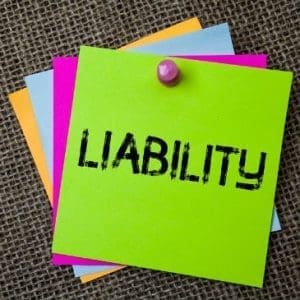 When I do financial leadership workshops with hotel teams we often talk about liabilities. I tell my audience that I know for a fact that each one of them have at least two liabilities. I get some puzzled and Kreskin-like looks from my audience as I tell them I can see two numbers floating magically above their heads. I tell them that I know for a fact that each student also knows the same figures, they are just not aware, yet!
When I do financial leadership workshops with hotel teams we often talk about liabilities. I tell my audience that I know for a fact that each one of them have at least two liabilities. I get some puzzled and Kreskin-like looks from my audience as I tell them I can see two numbers floating magically above their heads. I tell them that I know for a fact that each student also knows the same figures, they are just not aware, yet!
You see everyone knows how much vacation they have to take, and they also know how much money is owed to them in wages. They just don’t see these two “things” as liabilities but they are excellent examples because they pass the three-part test that any and all liabilities must pass. More on the three parts in a moment.
Liabilities are easily misunderstood if you are not thinking about them in the sense of a business. We all naturally think that my vacation pay is a good thing and it is to you. To your employers it is anything but good because they need to pay you when you are not there. It is definitely a liability to your employer.
All liabilities must pass a three-part test. Once you see the three parts you are going to understand the liability mystery and the confusion will evaporate right before your very eyes.
Liability test – Part 1
Liabilities need to have already occurred. That is right—they need to have already happened. Like the vacation pay we all have, it was earned yesterday, last week, last month and last year. Therefore, it already happened. Your employer has been keeping track of your earnings and at the same time they squirrel away a little extra expense for your upcoming holiday every pay period. This way they match the expense for your vacation when you earn it, not when you take it. This is a fine example of the matching principle, but more about that in another post. Each pay period you get your wages and somewhat secretly your finance department is adding a little to your holiday fund!
Liability test – Part 2
All liabilities embody a duty or responsibility. Your wages owed to you are a great example of this part of the test. There is no question that your employer owes you wages you already earned. It is part of the social contract between you and your boss. They are on the hook to pay you.
Liability test – Part 3
With all liabilities there is no room for avoidance. If your boss tried to cheat you out of your vacation pay or wages earned, they would face the local labor board or some other government body that would make sure you get paid. This rarely happens but they know that their obligation to you is without question.
So, to summarize: It’s already happened, it’s an obligation and there is no way to avoid it.
Some other liabilities that you will find on any hotel balance sheet
Accounts Payable – This is the outstanding list of vendors’ invoices that need to be paid for goods and services the hotel has already received, expensed and the hotel must meet its obligations or else….
Sales Tax Payable – This is the sales tax for rooms and food and beverage that the hotel has collected from prior sales. It is typically collected for one month then paid to the local or state/provincial government. The hotel has already collected the tax and it is obligated to remit the money. Failure to do so will land you in a pile of dung. Even being late a day can be extremely expensive. I know this from firsthand experience.
Advance Deposits – This is a tricky one because we naturally think of a deposit as a good thing. Not so fast. Let’s look at the three-part test. It already happened that the deposit was paid—in most cases if the client cancels in the appropriate amount of time we need to refund the deposit and have no room to avoid refunding it. Advance deposits have a special important characteristic in the sense that the deposit is a non-event for the profit and loss statement because we have not earned the income yet. We only get to book the revenue for the deposit when the guest actually comes and stays a night or has their event. Only then do we recognize the revenue.
A final example is a general one. Whenever you see the word “accrued” in front of the title of a balance sheet account you can bet your paycheck that it is a liability. Accrued utilities, accrued vacations, accrued salaries, accrued bonus, accrued workers compensation. These are all liabilities because they clearly pass the three-way test.
They already happened, there is a duty or responsibility and there is no wiggle room.















